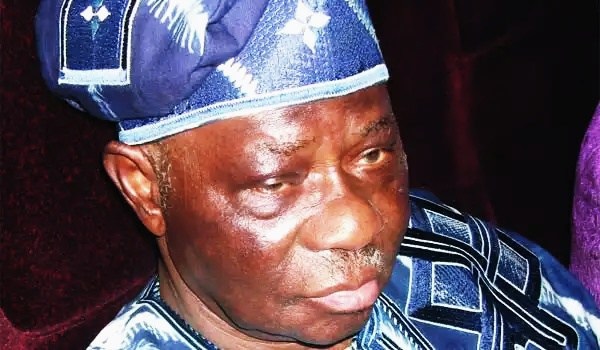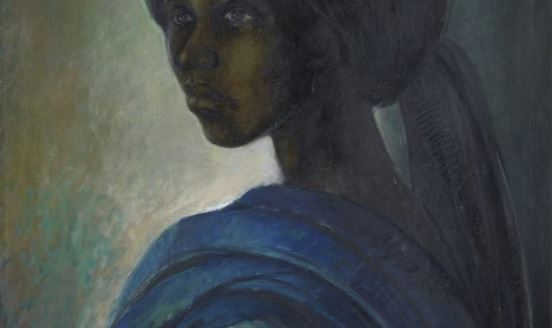Reviewer: Prof. Fred Onyeoziri
According to Chambers 21st Century Dictionary, “biography is an account of a person’s life usually written by someone else and published or intended to be published”.
The idea of writing an account of someone’s life suggests that the story of that life is worthy to be told for the benefit of a larger public. And according to Prof. Tseja who authored the biography, the story of Senator Ali’s life is so rich, exciting, and educative so much so that the story-teller himself finds it all self-intoxicating. A biography that tells us about the character, activities, interests, world view, profession and achievements of Ahmadu Ali gives us all the education anybody will need for a glorious life. That this life has stretched to eighty years and beyond suggests that God has a special interest in the significance of this life. Senator Ali’s story is a very good one, and when a master story-teller like Professor Tseja finds a good story there is no stopping him. We cannot do full justice to the full sameness of the details of Tseja’s account.Our advice is that everybody should buy a copy of this treasure account and read for themselves. This is the only way to avoid missing what is too good to be missed.
In Ali’s preface to the book he describes himself as ‘a perfectionist by nature with a strong sense of how I think certain things should be presented” and that he prefers ‘The many colours of a Rainbow” as the title of this book because it more properly describes the synchrony of the many different parts of my life”. In other words, for a man who earned a school prize at the age of four and went on to be a student activist, a medical doctor, an army officer, a three-times Minister of the Federal Republic, a three times Senator,and the Chairman of Africa’s largest Political Party the essential Ali shines through all of these achievements and more.
Having hinted earlier that we can only gain the full benefit of the book by buying a copy to read, we shall nevertheless summarize the major theme of each of the nine chapters of the book.
Advertisement
This first chapter which the author also titles “Prologue” begins with an opening statement which deserves to be quoted. According to the author, “Senator Ahmadu Ali is an extraordinary man who seems to have successfully crammed several life times into one. He is a man who has passionately pursued, simultaneously, varied interests or even careers and, somehow manages to excel and to rise to the pinnacle of achievement in each one of them”.
Senator Ali has domesticated within himself traits which ordinary people would have found too contradictory to accommodate comfortably. For instance, as a youth he was responsible yet rascally and still enjoyed the company of the elderly people who told him stories he loved to hear about the history of Igala people. While he identified with his Igala people and Northern Nigeria he still emerged as a detribalized young man. Thus, he identified with his local people and at the same time had curious interest in the development of the wider nation.
He was academic and loved reading, yet his hobbies included stamp collection, Boy Scout, and even local hunting expedition. He interacted with the lowly even when he spent most of his early life in the company of royalty in the palace of Attah of Igala. For most issues concerning Senator Ali, the question was never whether he can but rather whether he would like to. Thus, he developed an extraordinary disposition for public service. All we need to know about Ali’s all-round suitability was exhausted by Professor Jibril Aminu in his statement about Ali’s suitability for consideration in the National Executive Committee of PDP that was considering Ahmadu Ali for the national chairman of Africa’s Largest Party (PDP). In the words of Professor Jubril Aminu, (and I quote),
Advertisement
“Brothers and Sisters of the PDP, and fellow Nigerians, this is the man, the Nigerian nationalist, the man for all seasons, being presented here as the most deserving National Chairman of the PDP. If Ahmadu Ali did not exist, we would have had to invent him for this job; for a responsibility of this type of work requiring teamwork, courage, sheer guts, industry, independence of mind, forthrightness, broad minded world view, nobility of spirit , keen sense of justice, fair play, integrity, and focus on this job, a true Nigerian”
Perhaps in the end, the issue of Senator Ali is not whether he may not have one or two disagreeable elements, but rather whatever is the case, he is a man it is difficult to ignore.
Chapter two,deals with the historical antecedents of Ahmadu Ali. As a growing young man Ali was both curious and rascally. Sometimes he played truancy at school. He had goodfamily background for he was close to both his father, Mallam Ukuteno Ali Anaja and a member of the ruling house of Attahof Igala and his mother Hajiya Aideko Maimuna. He also had family links with the Attah and he spent a lot of time at the Attah’s Palace. Ali enjoyed knowing about the history of the local community in which he grew up, primarily Idah, Gbobe, Dekina where he attended the Dekina primary school and then the Okene middle school: He also followed the story of Lokoja’s early contact with the whiteman, and he read a lot about the Niger Expedition.Unfortunately, Ali lost his father at an early age, and this was going to affect his secondary education negatively because his uncle who inherited Ali’s father’s property refused to take on responsibility for Ali’s school fees. In a discussion with the Attah on the issue, the Attah confirmed that the Igala custom which allows Ali’s uncle to inherit his brothers property does not impose any responsibility on that uncle. Ali concluded that it was a clumsy Igala custom to allow a brother to inherit the property of a deceased brother without any compensatory responsibility. Mercifully, Ali was relieved when the Attah offered to inherit responsibility for Ali’s secondary school fees. Ahmadu Ali went on to secondary school at Zaria which was later named Barewa College. It was at Barewa College that Ali completed his secondary school education and produced the best school certificate result in his school that year, 1954.This prepared him to proceed to the Nigerian College of Arts, Science and Technology Zaria, to study for the London GCE A Level papers.
Chapter three is titled “Higher Education – a mixed grill of scholarship and politics”. When Ahmadu Ali ended his secondary education with an excellent school certificate result at Barewa College Zaria, he automatically qualified into the Nigerian College of Arts, Science and Technology, Zaria for GCE A-level papers.
Advertisement
He also went into active student unionism to become the General Secretary of National Union of Nigerian students. Thereafter, Ali got admission into University College Ibadan to study Medicine. Later, he was to go into the Nigerian Army as a Commissioned officer. Although Ali made a huge success of his various interests, yet it is not easy to see an obvious link between these interests. For instance, what is the link between his interest in formal academics and his interest in Politics – whether student activism or national politics? Again what was the link between his academics and his journey to the army or the connection between his Medicine and the Army career?
It is part of the Ali genius that he performed excellently in all these areas even where there are no automatic links between one and the other. Ahmadu Ali carried his position as secretary of the students union (NUNS) from the college of Arts, Science and Technology to his new place at the University College Ibadan where he found himself presiding over the only International Conference of Students that Nigeria ever hosted. Ali also carried his student activism to the level of influencing national politics. As secretary of NUNS at University College Ibadan, he helped to form an NPC Club. This NPC Club invited Sir Ahmadu Bello, the Sardauna of Sokoto, and Premier of the Northern Region, to give a public lecture at the famous Trenchard Hall of the University of Ibadan. The lecture which was heavily cheered by the audience opened more Southern support for the great Ahmadu Bello.
Senator Ahmadu Ali enjoyed his stay and education at the University College Ibadan, and he is not yet tired of praising the quality of lecturers who taught him Medicine at the University of Ibadan. Summing up his appreciation of what Ibadan means to him, Ahmadu Ali said this, and I quote: “Ibadan has meant everything to me. It has helped to shape my life in a very long way. That Ibadan provided me with meal ticket is not as important as what it stands for in my life. I not only passed through the portals of the University, the University also passed through me! Ibadan defined who I am and what I would become.”
Chapter four is titled career in the Nigerian Army.On March 14, 1963, Ahmadu Ali was commissioned into the Nigerian Army Medical Corps as 2nd Lieutenant even before he graduated from Medical School. He was posted to the First Battalion in Ibadan where he received his military training as well as taking charge of the Medical reception station there and running the clinic.
Advertisement
An interesting question to ask is what is distinctive or remarkable or even worthy of emulation about his involvement in the military? Ahmadu Ali was subsequently sent on for post graduate studies in Glasgow, Scotland. But before then he led a mock military exercise on how to contain rebellion from the Eastern Region should it happen. Ali’s performance was excellent and greatly appreciated by his superiors. It also became obvious then that he was the only medical doctor trained for war situation in the Nigerian Army.
Then incidentally, when Ali went into the Army and was qualified for salary from the Army he wrote to the scholarship Board in the Northern Nigeria ministry of education to stop paying his scholarship allowance in medical school.
Advertisement
And when he was chosen to do his House Job at the University College Hospital Ibadan, he also wrote the management of the College hospital to stop his house-job allowance since he was receiving salary from the Army. This show of integrity then is remarkable in the light of the fact that as late as now, this nation is still fighting against public officers who still go for double salaries or pensions.
A far more interesting controversy is that between Ali’s insistence that as a trained solider he should be deployed to fight in the war front during the civil war against his superiors who preferred that he should be deployed in the rear to take care of the medical problems of civil war casualties.
Advertisement
Ahmadu Ali enjoyed the trust and confidence of his superiors. He was appointed the pioneer Director of the NYSC. In the course of his duty he visited some foreign countries, especially Britain and the US, to learn how they operated similar organizations like the American Peace Corps. And back at home here in Nigeria, he went on lecture tours of the Universities to talk to our students on the gain of the NYSC. This helped to quell the initial student protest against service in the NYSC.
Ahmadu Ali also had the singular honour of being appointed commissioner of Education by three succeeding Heads of State; General Gowon, General Murtala Mohammed, and General Olusegun Obasanjo. There could be no singular demonstration of trust and confidence in one’s superiors than this. It is also on record that the educational ministry witnessed its greatest national expansion under the Ahmadu Ali tenure. This was the case across the board in expanding the Universities, the Colleges of technology and Education, the Teacher training Colleges and the Federal Government College System. Incidentally, under Obasanjo’s military tenure, Ali’s ministry of Education had more budgetary allocation than any other ministry including even the ministry of defence.
Advertisement
As an Administrator, Ahmadu Ali did not sit in the office and give instructions of what is to be done. He went out to the field himself to supervise the execution of every project his ministry has approval for. This enabled him to neutralize any obstacle that stands in the way of successful execution of any of his projects.This was how he ensured the establishment of the Federal Government Colleges at Ido Ani in Ondo State and Ugwualawo in the then Benue State against the attempt of their State Governors to undermine their construction. It was the same dynamism that enabled him ensure the establishment of the National Universities Commission and the first major National Policy on Education.
As Commissioner of Education, Ali’s tenure was a blessing to this nation. As has been hinted earlier, Nigeria has not seen that much educational expansion as witnessed under Ahmadu Ali. The “Ali must Go” Saga was an unfortunate Phenomenon because Ali was neither responsible for, nor consulted before, the decision against which the students protested.
Chapter five tells us about Ali’s life after the military. Ali’s first commitment on returning from the Army in 1979 was to resort to private medical practice. He established his Medicare Clinics Limited, Kaduna which he joined to his contract appointment as consultant physician at 44 Armed Forces Reference Hospital at Kaduna. But majorly, Ali was committed to remedying abuses in private hospitals. His worry was not only that the private hospitals were poorly equipped but that they engaged in such abuses as improper use of drips and too much reliance on surgical interventions.
Ahmadu Ali was an excellent medical doctor based both on his training at the University College Hospital Ibadan and his post graduate medical studies at Glasgow and Edinburgh, Scotland.He was enthusiastic to lend the benefit of his experience to the training of the newer and younger doctors.
His second major preoccupation after leaving the Army was Politics. He started with Igala divisional politics and climbed on to national Politics. He was elected Senator of the Federal Republic three times (1979, 1982, and 1991). He was noted for fiery campaign speeches. He also led the movement for the creation of Kogi State which finally materialized on the 27th of August 1991 under General Babangida’s regime.
Subsequently, Ali became a kingmaker of Kogi State aspirant Governorship elections.With the emergence of PDP, Ali got to the high water mark of national Politics and it was from there that he got to the Apex in 2005 as the national chairman of Africa’s largest Political Party. In his capacity as the chairman of the party’s national campaign council he led the party to a major electoral victory that installed late Umaru Musa Y’ardua as the President and Dr. Goodluck Jonathan as the Vice President. Ahmadu Ali may have softened on the term – elongation issue but generally he is not a chairman Presidents or Governors could push around. He remained firmly in control of the party and presided over the convention that elected his replacement at the due time!
Chapter six tells us about Ali’s hobbies. For a man who had achieved such feats as retired Army Officer, first rate medical doctor, and front line national politician, you would think he did not have time for anything else. No. He had hobbies which he was also committed to up till now.
Ali’s first and most prominent hobby up till now is stamp collection. He started this way back in his primary school days and later went beyond stamp collection to become a stamp historian. There is hardly a Nigerian who knows about stamp collection as much as Senator Ali. This is not surprising because he has been the President of Nigeria’s Philately Association for about eighteen years.
Another hobby of consuming interest for Senator Ali is the one with the magic name of Numismatics.
This deals with coin and currency collection. This hobby is more costly than stamp collection and Ali has in his collection various coins which have been used in Nigeria, Britain and other countries.
Finally and which perhaps is more important to him than philately, is reading. According to ourauthor, Senator Ali is a voracious reader of anything which extends knowledge especially of the anthropological history of his people and his clan, the Aboko clan.
In Chapter seven, we learn of ‘The Great Escapes.’ While he has succeeded in taking good care of himself, he has nevertheless escaped major death threatening hazards or shall we call them accidents. There have been four such major escapes from death or close encounters with death.
The first was in 1954 when he was barely eighteen years old and at Barewa College and he attended the 12th Man O’ war Bay training Programme in the Cameroons. In the efforts to get to the top most part of the mountain amidst slippery ground, snow and windy storm he managed to escape being blown off the peak of the mountain, unlike two of his colleagues who did not survive the hazard. Radio Nigeria carried the news of two students who were blown off into the volcanic ash on mount Fako. Ahmadu Ali regards his climbing the Cameroon Mountain as one of the great escapes of his life when he came close to death. Another major escape from death was when he was prevented from travelling in a train that later crashed at Lalupon near Ibadan. His friends who traveled on that train did not escape the disaster. He also had two other escapes from death when he was prevented from flying a plane that ended up crashing. The one was when he was on official tour to the US and he missed a plane that was to take him and his colleagues to Los Angeles. The plane ended up crashing on the way killing all the passengers.
On two other occasions when he was on internal flights here in Nigeria, his planes, one from Sokoto to Kaduna, and the other from Enugu to Lagos ran into flight difficulties but he was eventually saved from the difficulties God has been preserving him for more achievements.
In chapter eight, readers are let into Ali’s family. Ahmadu Ali is a very detribalized person. He is blind to both tribe and religion. Although he is Igala, two of his wives are Igbo, and although he is Moslem, again two of his wives are Christian.
When Ahmadu Ali was a medical student at the University College Ibadan he was not too good at‘toasting’ young women. But he ended up with three wives, and the third and final amongst them is a very beautiful woman, resourceful, loving and supporting all the way. She is also a medical doctor with a flair for politics. Although her people call her the Star of Asaba, Senator Ali titled her the Matriarch of the Ali clan.
Ali is blessed with eleven children: three young men, and eight gorgeous girls. They are all well taken care of in the family, and they are all graduates.
Chapter nine on the activities that went down as Ali marked his 80th birthday. As Senator Ahmadu Ali turned eighty, he saw this as evidence of God’s grace on his life. He decided to celebrate by organizing prayer thanksgiving. The prayer session featured both Moslems and Christians. His family and friends were all strongly represented. Many of Ali’s old friends, and former classmates could not make it because they were all gone.This is another evidence of God’s grace on the life of Ali.
The celebration was honoured by two former Heads of State: General Yakubu Gowon and General Olusegun Obasanjo. His Royal Highness, Attah of Igala, was also amongst the dignitaries’ present. The full complement of Ali’s great family was strongly present including his star wife Dr. Marian Ali and the matriarch of the Ali clan.The University of Ibadan Alumni Association was a major organizer of the event.Way back in 1997, Ahmadu Ali had the singular honour of being awarded the most distinguished Alumnus of the University of Ibadan by the Alumni Association.
Another Association that featured prominently in the celebration was the Post Office and Philatelic Association of Nigeria.
The celebration was honoured with a Public Lecture delivered by Retired Colonel from the Nigerian Army Education Corps, Col. Tunde Akogun. The title of the lecture was “Brilliance, Bluntness, Courage, True Leadership, Industry, and Diligence in service”.
Ali’s biographer concluded the 80th year celebration in the following words: “This was a memorable birthday anniversary “Celebrating the longevity and the achievements of this unusual of men. Looking at him it seems he is not yet done. At 80, he is still as vibrant, youthful, irrepressible and as busy as ever. “Ali has refused to go”.With God’s grace and his own healthy life style, we are almost certain that when he is 90, he will be here for us to tell him “Senator Ahmadu Ali, happy birthday’ once again.
There is no limit to what we can learn from this man of character and achievements. This is probably why God is keeping him alive until we all have picked something from him. This is the purpose of this biography!






